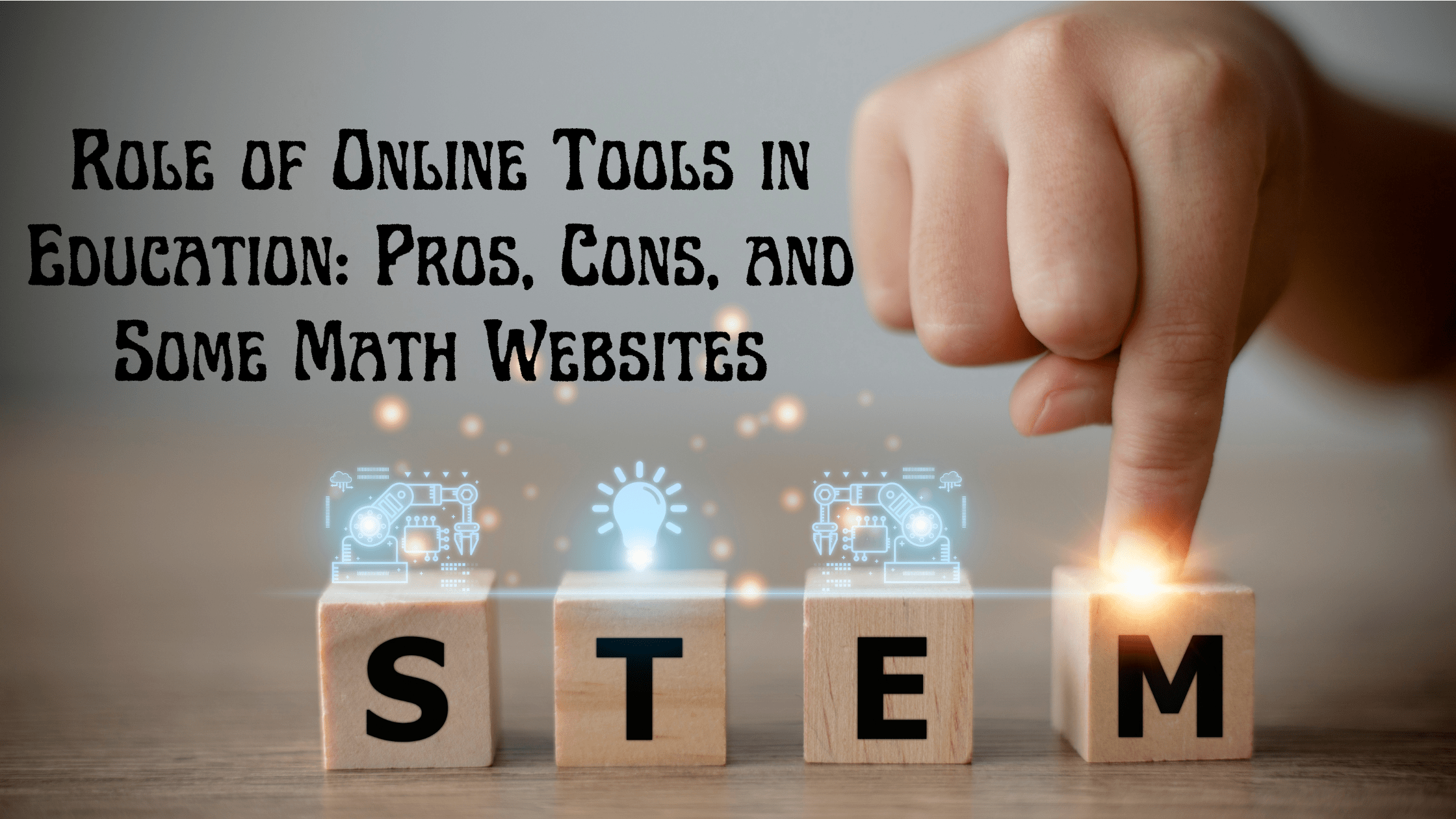In the era of technology, the usage of the internet is accessible to each person. Students and teachers can use online materials to make teaching and learning easier as compared to past decades. Online tools play an essential role in education in this regard.
These tools can assist you in comprehending concepts you may have missed during lectures or missed classes due to other commitments. This article will help you to learn the role of online tools in education, their pros & cons, and some educational websites that make work easier.
What are Online Tools?
In this modern era, the usage of software applications & resources that are available on the internet for performing different tasks like solving complex problems and achieving some goals are said to be online tools.
These tools can be helpful in education, business, marketing, design, & different fields. These tools allow users to solve any kind of problems, programs, and conversions through web browsers without downloading & installing software on their local devices.
Below are a few examples of online tools:
| Tools Type | Description |
| Word processors | Online word processors like Google Docs and Microsoft Word Online allow users to create, edit, and collaborate on documents in real-time. |
| Graphic Design Tools | Online graphic design platforms like Canva offer tools for creating graphics, images, and visual content. |
| Online Calculators | Websites like Allmath, Meracalculator, slopecalculator, etc. offer specialized calculators for various mathematical, scientific, and engineering calculations. |
| Project Management Tools | Platforms like Asana, Basecamp, and Monday help users manage projects, tasks, and deadlines. |
| Cloud Storage and File Sharing | Cloud storage services like Dropbox, Google Drive, and OneDrive enable users to store, access, and share files online. |
What is the Role of Online tools in Education?
Online tools play a crucial role in education for solving numerical problems, performing conversions, making notes, and dealing with writing and reading skills. Students and teachers can get online guidance for dealing with difficult problems using online tools.
Below are some specific roles of online tools in education.
| Role | Explanation |
| Accessibility | Educational material become more accessible to a wide range of learners with the help of online tools. Students can use the internet at any place at any time to find educational martial, resources, and courses. |
| Remote Learning | These tools are essential sources for remote learners to get in touch with the educational environment and complete their notes. Virtual classrooms, video conferencing, and collaboration platforms enable students and teachers to engage in real-time learning experiences regardless of their physical locations. |
| Global Collaboration | These tools enable students and teachers to get in touch with experts all over the world to take full guidance about a specific topic that is difficult to teach and learn. |
| Skill development | These tools allow the user to improve their skills. Professionals can access online courses, webinars, and tutorials to stay updated in their fields or to acquire new skills relevant to their careers. |
| Data-Driven Insights | Online tools collect data on student performance, engagement, and learning patterns. Educators can use this data to identify struggling students, tailor instructional approaches, and refine course content to better meet the needs of learners. |
| Continuous Improvement | The dynamic nature of online tools allows educators to update and improve content more quickly than traditional printed materials. This ensures that educational content remains relevant and up-to-date, especially in fast-changing fields. |
| Diverse Learning Formats | Online tools offer a variety of learning formats, including text, videos, interactive simulations, quizzes, and more. This diverse range of content engages different learning styles and preferences, making education more engaging and effective. |
Pros & Cons of Online tools in Education
Here are some pros and cons of online tools in education:
| Pros | Cons |
| Online education is less expensive as compared to traditional in-person education. It eliminates the need for physical facilities and reduces travel expenses. | Not all students have equal access to technology and the internet as some rural and urban areas didn’t have access to digital signals that create a digital divide that can make worse educational inequalities. |
| Online tools support continuous learning, allowing individuals to gain new skills and knowledge throughout their lives. | Students without reliable internet access or proper devices may be left behind in online learning environments. |
| Professionals can engage in ongoing professional development without having to take extended breaks from their careers. | Online learning requires strong self-discipline and motivation. Some students may struggle with time management, delay, and maintaining focus without the structure of in-person classes. |
| Online tools provide immediate access to a vast collection of resources, research materials, and databases. | Online assessments and assignments may be susceptible to cheating and plagiarism, as it can be more difficult to monitor students’ activities compared to traditional classrooms. |
| This streamlines the learning process and helps students stay updated with the latest information. | Online learning might result in delays in receiving feedback, which can delay the learning process. |
| Online tools allow for rapid updates and revisions to educational content, ensuring that students have access to the most up-to-date information in fields that are rapidly changing. | Students may feel isolated in online learning environments and they might miss out on the direct guidance that they might get personal interaction with teachers that traditional classrooms provide. |
| Online education can accommodate students with diverse learning needs, including those with disabilities. | Online learning often involves extended periods of screen time, which can lead to digital eye strain and potential negative health effects. |
5 Best Math Online Tools
In an era characterized by rapid technological advancements, the landscape of education has undergone a deep transformation. One of the most significant shifts has been the integration of online tools into the learning process.
In the land of mathematics education, this transformation has covered the way for an array of original resources that develop learning experiences, satisfy miscellaneous learning styles, and bridge the gap between traditional classrooms and digital environments.
From algebraic equations to complex calculus problems, these online tools offer students and educators a dynamic platform to engage with mathematical concepts in novel and interactive ways. In the world of mathematics education, we have unveiled five of the best math online tools that are reshaping how we teach and learn this critical subject.
From virtual graphing calculators to comprehensive problem-solving platforms, these tools are propelling mathematics education into the digital age, enhancing understanding, fostering collaboration, and paving the way for a new era of mathematical literacy.
Khan Academy
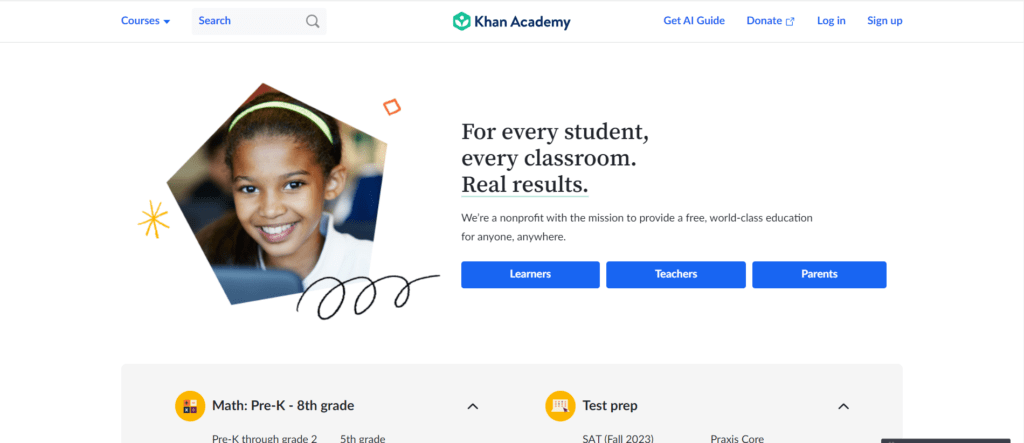
Khan Academy offers a comprehensive library of free instructional videos, practice exercises, and assessments covering a wide range of math topics, from basic arithmetic to advanced calculus. The platform provides personalized learning paths and real-time feedback, making it suitable for students of all ages.
Visit website: Khanacademy.org
Desmos
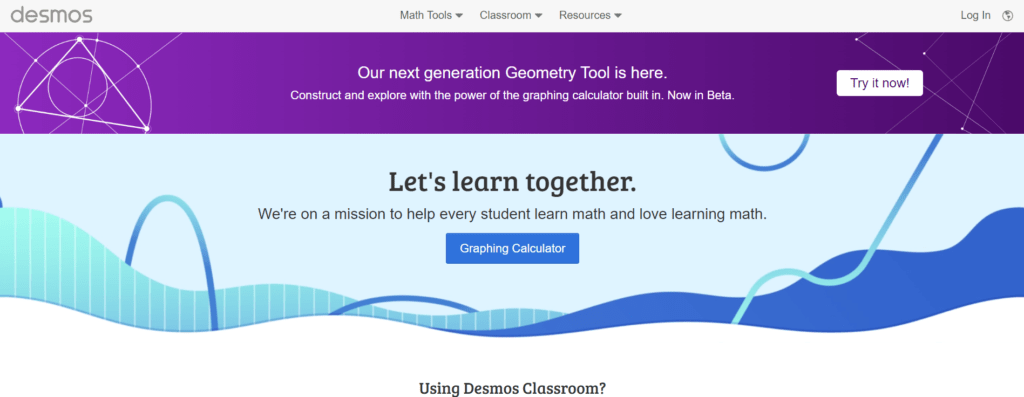
Desmos is a powerful graphing calculator and online math tool that enables users to visualize and explore mathematical concepts through interactive graphs. It’s particularly useful for visualizing functions, equations, and geometry concepts. Desmos also offers various teacher resources for creating interactive math lessons.
Visit website: desmos.com
AllMath

AllMath is a computational engine that can solve complex mathematical equations, perform symbolic algebra, graph functions, calculate derivatives, and more. It’s a valuable tool for both students and educators who need advanced computational capabilities.
Visit website: allmath.com
MeraCalculator
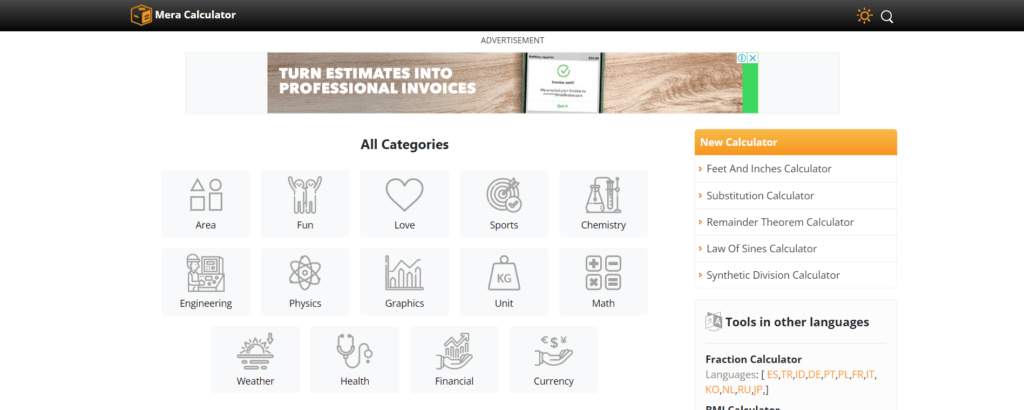
MeraCalculator is a dynamic mathematics software that combines geometry, algebra, calculus, and graphing in a single platform. It’s particularly helpful for visualizing and experimenting with mathematical concepts, making it a great tool for both teaching and learning.
Visit website: meracalculator.com
IXL Math
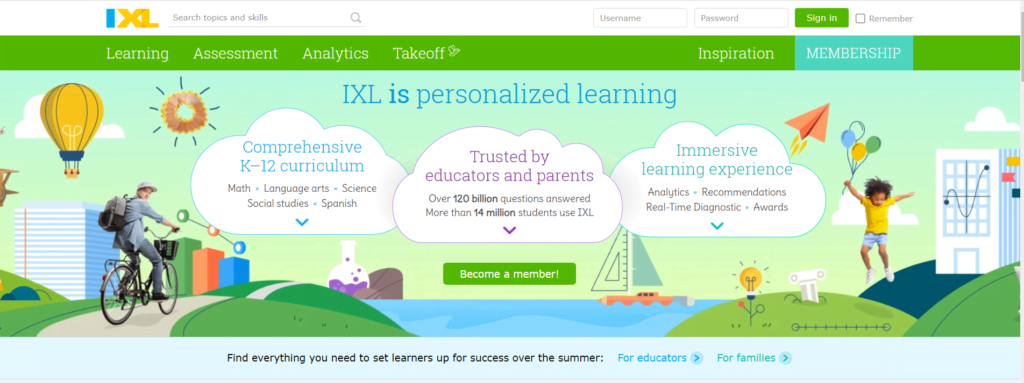
IXL Math offers interactive practice exercises for various math skills and concepts. It covers a wide range of topics and provides students with immediate feedback as they work through problems. Educators frequently use IXL to supplement classroom instruction and allow students to practice math skills independently.
Visit website: ixl.com
Conclusion
In this article, we’ve delved into the world of online tools, examining their pivotal role in modern education. We discuss both the advantages and potential pitfalls of using these tools in educational settings. Additionally, for math enthusiasts and learners, we’ve curated a list of the top 5 math websites.
Whether you’re a teacher, student, or just someone keen on exploring the digital realm of education, this post offers comprehensive guidance.

